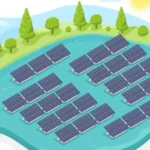Extension Of Localisation Deadline Hits India’s EV Charger Manufacturing Sector

FAME-II scheme mandates that manufacturers of electric vehicles and EV chargers must achieve a minimum of 50 percent domestic value addition to qualify for incentives
In a recent development, India’s plans to boost local manufacturing of electric vehicle (EV) chargers have witnessed a setback, as the Ministry of Heavy Industries announced an extension of localisation deadlines for crucial components.
The decision, stated in a notification on 7 November, signifies hurdles in achieving indigenisation under the Faster Adoption and Manufacturing of Electric and Hybrid Vehicles in India (FAME-II) scheme.
The affected components, including the DC Energy Metre, HMI and display, charging guns, controllers, and power electronics and modules, were originally slated for localisation by July 2022. However, the deadlines have now been deferred to December 2024, presenting a challenge for manufacturers striving to meet the stringent requirements set by the FAME-II programme.
The FAME-II scheme mandates that manufacturers of electric vehicles and EV chargers must achieve a minimum of 50 per cent domestic value addition to qualify for incentives. The postponement of deadlines for critical EV charger components underscores the industry’s struggle to identify alternative local suppliers, raising questions about the feasibility of meeting the stipulated targets.
India’s localisation requirements aim to curb reliance on imports, a move driven by the pressing need to expand the network of public chargers in response to the surging demand for electric vehicles.
The country has taken steps to incentivise the establishment of charging infrastructure, including a reduction in the value-added tax for chargers and charging stations from 18 per cent to 5 per cent. Simultaneously, the tax rate for electric vehicles has been lowered from 12 per cent to 5 per cent, demonstrating the government’s commitment to fostering the growth of the electric mobility sector.










































































































































































































































































































































































































































































































































































































































































































































































































































































































































































































































































































































































